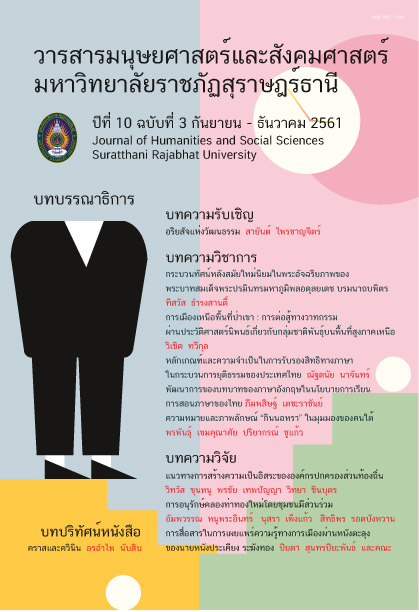Dr. The Development of the Role of English in Thailand’s Language Education Policies
Main Article Content
Abstract
This article aims to investigate the augmentation of the role of English as reflected in Thailand’s language education policies from the reign of King Rama III to the present by considering the requirements and regulations designated in such policies, e.g. the status of English (as a foreign language, a second language, etc.), the number of study hours, the qualifications of learners and teachers, and the educational formats. The findings show that the continuously increasing role of English in Thailand’s language education policies can be viewed as four pivotal stages. The first stage was in the period of King Rama III-IV, when English was taught as an optional foreign language (not compulsory like Pali or Khmer), and learned in the confinement of the blue blood and aristocrats. The second stage was initiated in the reign of King Rama V, when the education reform gave rise to the designation of English as a foreign language in curricula and as a language subject that must be tested along with the Thai language. It was not until 1996, the third stage, that the role of English was elevated to the ‘first’ foreign language separate from other foreign languages, and designated as a compulsory subject in every level of study. Presently, in the fourth stage, English has a heightened role superior to other foreign languages, having been proposed to be ‘the second language’ of Thailand by 2027 in the Vision Appointment for Future Development Summit. The continuously increasing role of English in the national language education policies portrays the significance of English, as the global language, is catching up with Thai, which is the national language.
Article Details
All published manuscripts have been verified by peer-peer professors in the fields of humanities and social sciences. Reprinting of the article must be authorized by the editorial staff.


